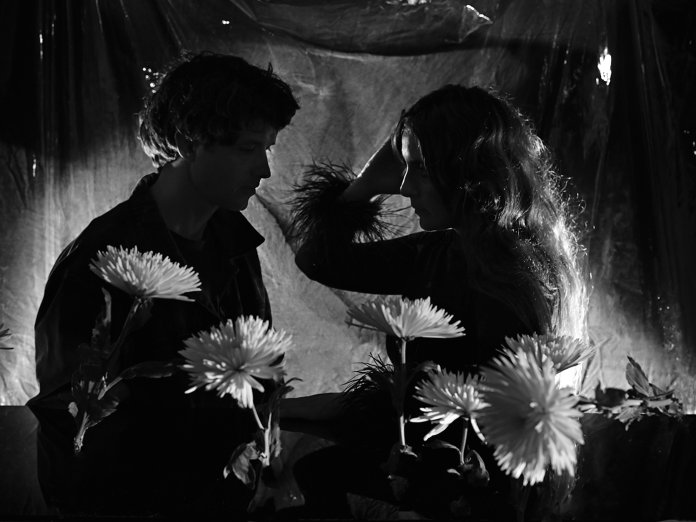There are moments in Beach House’s eighth album so full of texture and detail, the effect can be overwhelming. In “Pink Funeral” – one of many songs on Once Twice Melody in which the Baltimore duo make startling use of arrangements by Beck and Adele collaborator David Campbell – that phenomenon begins to happen even before the strings kick in, adding scope and drama to music that may already seem improbably huge. “How sweet the sound,” Victoria Legrand coos ever so aptly as her voice enters the song and adds a further layer of sumptuousness.
The first of Beach House’s albums to incorporate a live string ensemble as well as the first produced by themselves, Once Twice Melody is their biggest effort in more ways than one. Yet it’s not as if the band were ever hesitant about granting their music a degree of grandeur. Even in the earliest songs of Legrand and Alex Scally’s fruitful partnership, there was the sense that what they were creating was fuller and stranger than the constituent parts would normally allow. Of course, as any practitioner of dreampop’s dark arts knows, an arsenal of reverb and delay pedals lends girth to just about anything. But there was another alchemy at work in the most bewitching passages of Devotion in 2008 and 2010’s Teen Dream as Legrand’s plangent vocals wended their way through the duo’s dreamy thicket of gauzy guitar and vintage organ and synth sounds.
With that template in place, Beach House were free to dial the intensity up or down as circumstances demanded. And whether their songs required the softer edges of Bloom in 2012 or the more muscular sensibility that producer Peter “Sonic Boom” Kember helped bring to 7 in 2018, that alchemy’s enduring potency meant Beach House always sounded too voluminous to ever be mistaken for wispier peers.
Nevertheless, Once Twice Melody dwarfs what’s come before. For one thing, it’s their longest album at 18 tracks. Though a few songs date back before recording began in 2018, most are newly written, Legrand and Scally being evidently as productive during the lockdowns as they were during the period that yielded both Depression Cherry and Thank Your Lucky Stars in 2015. Such a bounty is a lot to absorb, which is why the album is wisely presented as a series of four chapters. The first quartet of songs is the headiest, lushest music here. Like “Pink Funeral”, Once Twice Melody’s title track, “Superstar” and “Through Me” are stunning demonstrations of their flair for the cinematic. Though the candy-coated menace of Angelo Badalamenti’s scores for David Lynch has long been discernible in Beach House’s aesthetic wheelhouse, the addition of strings adds a swoony romanticism well-suited to the reveries of love, longing and night-time stargazing that fill Legrand’s lyrics.
That same richness distinguishes second-chapter standouts like “ESP”. But by Once Twice Melody’s midpoint, it’s clear how the more unexpected elements are key to keeping these displays of grandeur and glamour from becoming sickly sweet. One counterbalance is the flickers of acid-rock guitar that pierce through the densest passages. And with its combination of swirly synth arpeggios and burlier beats, “New Romance” is one of many songs that eschew shoegaze’s easy raptures for a chillier intensity. Indeed, however large Cocteau Twins may loom in Beach House’s pantheon of ’80s-vintage inspirations, the darkly beguiling “Over And Over” and the eerie electro of “Masquerade” suggest Once Twice Melody’s dark heart truly belongs to Chris & Cosey.
As is typical for an album that comes in such a generous serving, some items on the plate can seem extraneous. An otherwise pretty piece built around Scally’s spangly guitar, “The Bells” is indicative of the thinning supply of fresh ideas in Once Twice Melody’s final two chapters. Thankfully, Legrand and Scally have worked too hard not to finish this out without a flourish worthy of the occasion, following the album’s sparest song, “Many Nights”, with the most sweeping. But just as Campbell and his string players are about to go for the full John Barry in “Modern Love Stories”, Legrand and Scally pull it back to close the album with something more delicate. The moment underscores the possibility that Once Twice Melody’s greatness lies not in its hugeness – it’s in the duo’s ability to create music that possesses the same intimacy regardless of its scope. And that’s a magic trick that never loses its allure.



